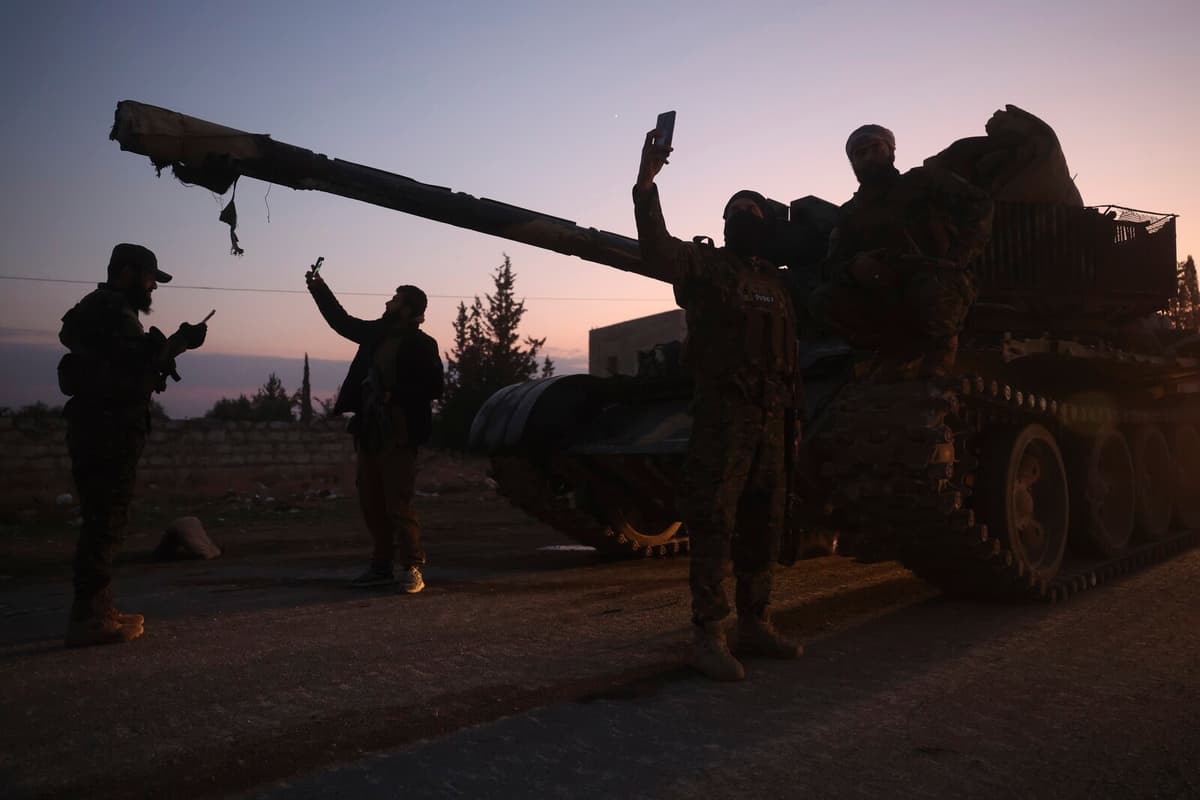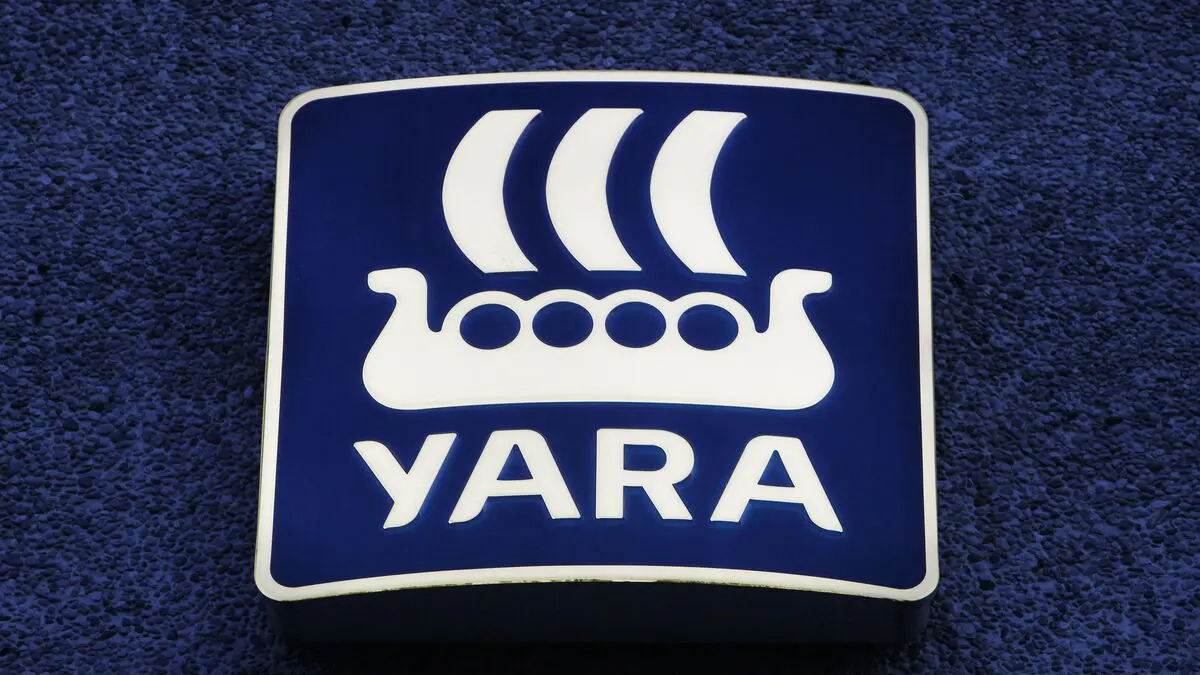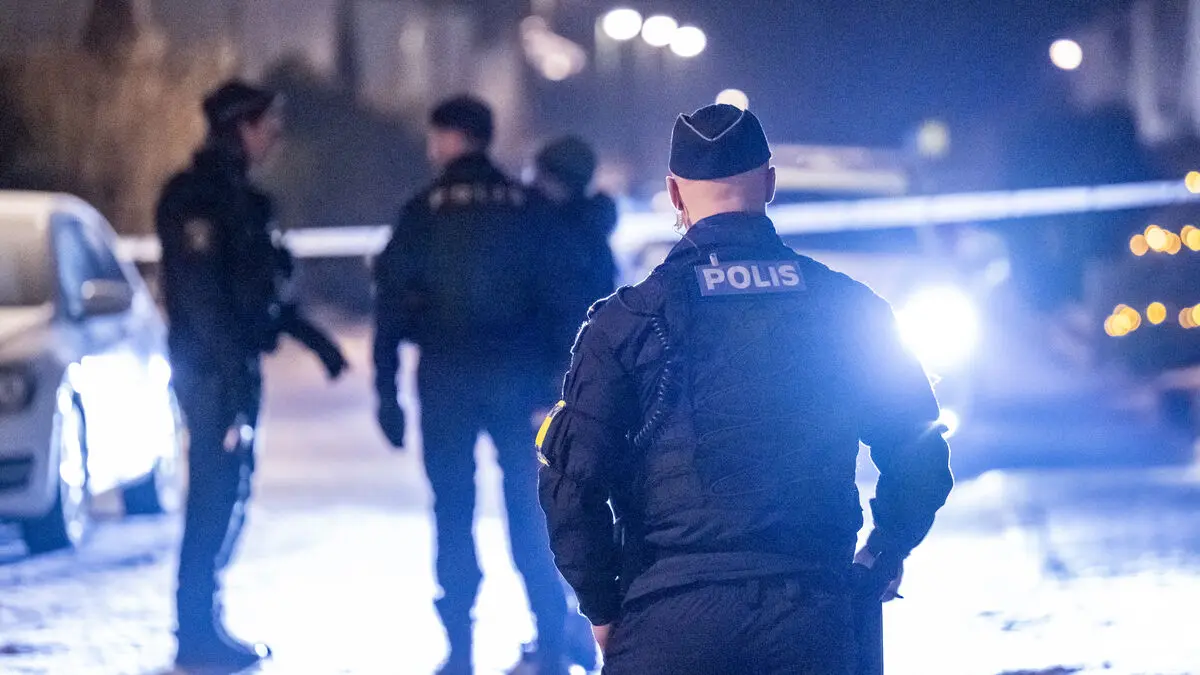In a surprising offensive last week, jihadists, led by the extremist movement HTS, took control of large parts of the metropolis Aleppo in northwestern Syria. The organization is now seen as the strongest force against President Bashar al-Assad's government.
In Idlib, in the country's northwestern parts, HTS is the dominant military actor and fights both against rival armed groups and Syrian regime forces.
They also have a political administrative branch that handles the administration of the areas they control. It's everything from social welfare to school, healthcare, and infrastructure. But all power is controlled from a legal system based on a strict interpretation of Sharia laws and they have religious courts that apply Sharia laws, says terror researcher Magnus Ranstorp.
The ultimate goal is, just like for other similar groups, to establish an Islamic state based on Sharia.
Announced Break
HTS leader Abu Mohammed al-Jawlani made a name for himself as the leader of al-Qaeda's Syrian branch Nusra Front as early as 2011. He quickly established a strong organization that attracted followers, carried out attacks, and secured income through donations, taxes, and seizures of assets in the territories where they took control, writes think tank CSIS.
But in 2016, Abu Mohammed al-Jawlani officially announced that his organization would break with al-Qaeda, although many believe that the organizations have continued to maintain contact.
Then came a new transformation again, they absorbed various jihadist groups. They tried to distance themselves from global jihadism and connections to al-Qaeda and act more pragmatically, but it's still an extreme group, says Magnus Ranstorp.
It was during that transformation, in 2017, that Nusra Front was dissolved and HTS was formed.
"Independent"
The group's goals have partially changed since the announcement of the break with al-Qaeda. Abu Mohammed al-Jawlani has softened the strict jihadist ideology somewhat to try to make the group more appealing to broader groups, writes BBC. Among other things, the organization is now trying to avoid jihadist expressions and Islamist references in its official statements.
HTS claims today that the organization is completely independent and does not follow al-Qaeda or other parties, but the US government still believes that some communication continues between them.
The movement is listed as a terrorist organization by several countries, including the US, as well as by the EU and the UN.
Syria is a relatively young state, founded in an area where humans have lived for thousands of years – both the capital Damascus and Aleppo are among the world's oldest cities.
Until the end of World War I, today's Syria was part of the Ottoman Empire, which has since shrunk and transformed into today's Turkey. Between the wars, the Syria area was ruled by France, which then withdrew so that the country could become independent after World War II.
But even since then, the Syrians have had a turbulent and often brutal political life. The country has waged war against Israel several times since the late 1940s and briefly formed the United Arab Republic with Egypt and the Gaza Strip in the late 1950s. After several coups in the 1960s, the al-Assad family took power, first with father Hafez al-Assad and after his death in 2000, son Bashar al-Assad. The latter has managed to hold onto the presidential post, largely thanks to Russian support, even during the civil war that has ravaged the country since the "Arab Spring" in the early 2010s.






